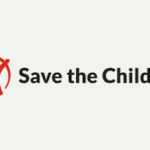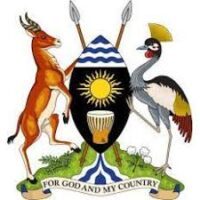KEY AREAS OF ACCOUNTABILITY:Assessment, Research, and Evaluation Design
- Identify and define the purpose, scope, and type of assessments, evaluations, and research needed for project design and budgeting.
- Develop key research questions that contribute to advancing the evidence base and improving program effectiveness.
- Lead the design of targeted assessments, evaluations, and operational research initiatives, ensuring alignment with organizational priorities.
- Develop and contribute to Terms of Reference (ToR) for all research and evaluation activities.
- Support field teams, partners, and consultants in designing research methodologies, data collection processes, and analytical tools.
- Oversee data collection and ensure adherence to high-quality standards in research execution.
- Ensure all studies involving human participants meet ethical and risk assessment standards, with appropriate safeguarding measures in place.
Study Management, Reporting, and Dissemination
- Manage assessment, baseline, and evaluation processes, maintaining an Activity Tracking Table for efficient monitoring.
- Oversee the development of assessment and research reports, ensuring accuracy, relevance, and clarity.
- Lead the dissemination of findings through reports, presentations, and innovative knowledge-sharing approaches for internal and external stakeholders.
Knowledge Management and Learning
- Work with the Knowledge Management and Learning Advisor to Capture, document, and share lessons learned from country programs to inform continuous improvement.
- Strengthen MEAL and program teams’ capacity in research methodologies and evaluation processes through training, coaching, and mentorship.
- Contribute to the development and refinement of evidence-based approaches that enhance program impact.
- Submit relevant study information to the Global Evaluation and Assessment Pipeline, ensuring alignment with global standards and best practices.
Safeguarding in Research and Assessments
- Ensure ethical considerations and risk assessments are embedded in all study activities involving human participants.
- Implement procedures, training, and referral mechanisms to address child safeguarding concerns in research and assessments.
- Promote adherence to safeguarding policies to protect children and vulnerable populations throughout the research process.
BEHAVIOURS (Values in Practice)
Accountability:
- holds self accountable for making decisions, managing resources efficiently, achieving and role modelling Save the Children values
- holds the team and partners accountable to deliver on their responsibilities – giving them the freedom to deliver in the best way they see fit, providing the necessary development to improve performance and applying appropriate consequences when results are not achieved.
Ambition:
- sets ambitious and challenging goals for themselves and their team, takes responsibility for their own personal development and encourages their team to do the same
- widely shares their personal vision for Save the Children, engages and motivates others
- future orientated, thinks strategically and on a global scale.
Collaboration:
- builds and maintains effective relationships, with their team, colleagues, Members and external partners and supporters
- values diversity, sees it as a source of competitive strength
- approachable, good listener, easy to talk to.
Creativity:
- develops and encourages new and innovative solutions
- willing to take disciplined risks.
Integrity:
- honest, encourages openness and transparency; demonstrates highest levels of integrity
QUALIFICATIONS
- Master’s degree or equivalent in M&E, Statistics, Social Sciences, Public Health, International Development or related field
Qualifications, Skills and Experiences
- A minimum of five years of conducting assessments, evaluation and research humanitarian and development contexts, preferably with solid experience in more than one of the Save the Children priority sectors: education, protection, rights governance, health and nutrition, and emergencies
- Extensive experience in research and monitoring and evaluation methodology and analysis (qualitative, quantitative, participatory) including design of systems and tools, data analysis and report writing
- Experience in strategic thinking and planning skills, ability to set priorities, prepare manageable plans and to evaluate progress.
- Excellent written and oral communication skills including proven success in ability to present ideas and concepts effectively and persuasively.
- Excellent analytical and project management skills including demonstrated ability to set and manage priorities and multiple tasks. Outcomes and deadlines oriented.
- Excellent attention to detail. Organized and process-oriented
- Ability to establish and maintain conducive collegial relations and perform effectively as a member of a team.
- Willingness to travel and work in hard-to-reach areas, occasionally under strenuous conditions.
- Computer literacy with experience in the use of data analysis software like SPPS, STATA
- Highly developed cultural awareness and ability to work well in an international environment with people from diverse backgrounds and cultures
Additional Job Responsibilities:
- The duties and responsibilities as set out above are not exhaustive and the role holder may be required to carry out additional duties within reasonableness of their level of skills and experience.











